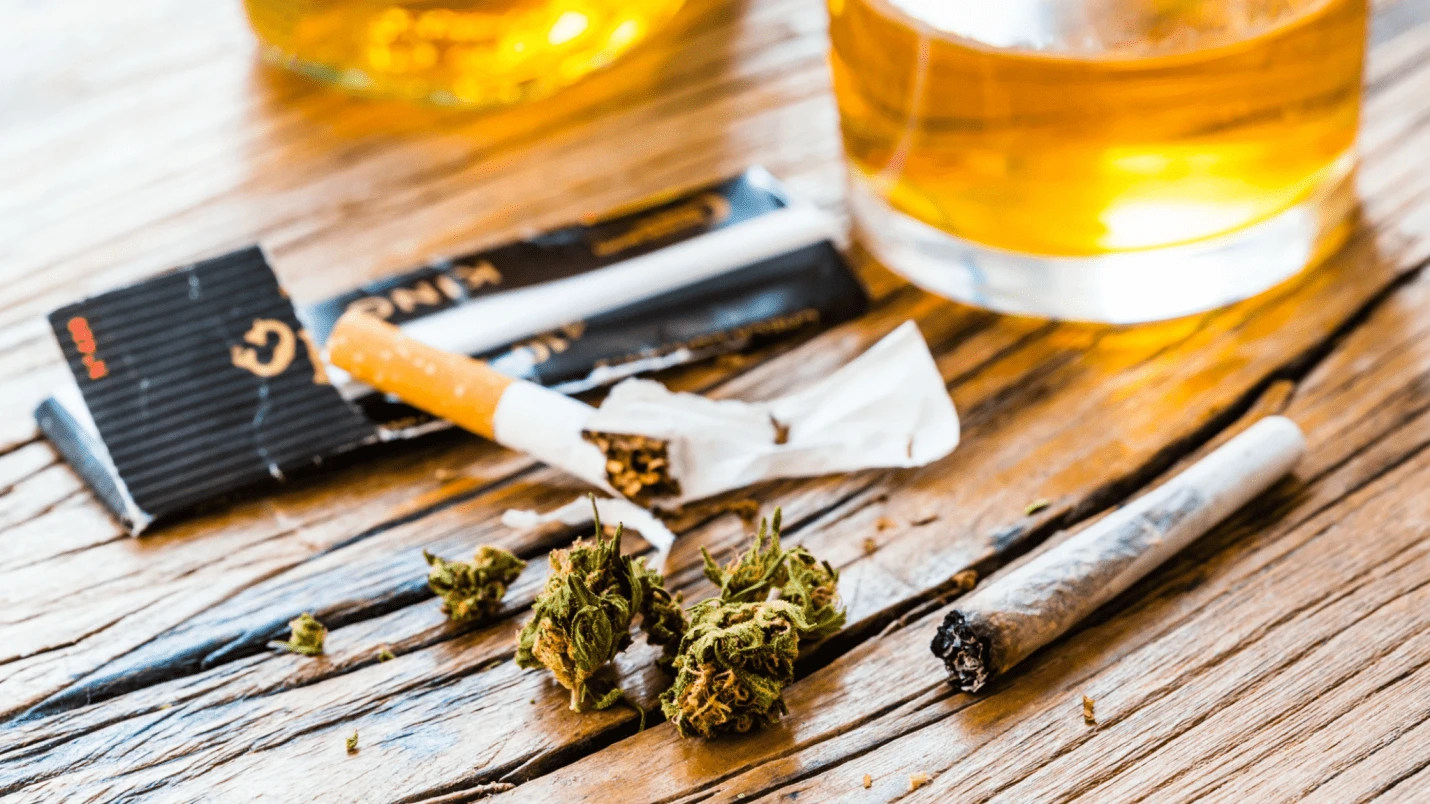Potential Health Implications of Marijuana and Alcohol Consumption
Regular marijuana and alcohol use has serious health concerns that you should consider. Each substance has different health implications that might put your life at risk. Nowadays, many states allow marijuana for both medical and recreational use. Though alcohol is a drug that is both socially and legally acceptable, both substances have the quality of increasing the overall health risks for those who use them.

The health risks are greatest when these substances are consumed together, but even when consumed separately, many health risks have been associated. In the case of marijuana, scientists have described acute problems with memory, coordination, and judgment and chronic issues such as respiratory problems, cardiovascular disease, and cognitive impairment. Alcohol also has negative consequences, such as addiction, heart problems, and liver damage. It should be noted that when these drugs are consumed simultaneously, although they may have different effects, both act synergistically, enhancing each other.
People frequently mix marijuana and alcohol to achieve a stronger high or a more altered state of consciousness. Combining these substances can raise the risk of cognitive impairment, impaired motor abilities, and poor decision-making ability. Furthermore, combining marijuana and alcohol can exacerbate the negative health consequences of both drugs, such as anxiety, nausea, and a racing heart. While infrequent usage does not offer a considerable health risk, the combination of the two substances significantly increases the possibility of negative results; therefore, caution is suggested.
What Are the Individual Risks of Marijuana and Alcohol?
Using marijuana can hurt your mental and physical health in several ways. Marijuana use often leads to short-term cognitive impairment, such as problems with remembering and coordination. Also, smoking marijuana can cause breathing problems like asthma and irritation of the lungs.
For teens and young adults, long-term use may lead to cognitive problems and changes in how the brain develops. Additionally, new evidence shows that marijuana use may also increase cardiovascular risks, such as heart rate and blood pressure, which may make cardiovascular conditions worse.
Alcohol consumption can have a significant impact on your entire life as well as your health in general. An example of this is the effects of alcohol on the liver, in which cirrhosis, fatty liver disease, and chronic inflammation are a common illustration of the effects in this organ. The fact that alcohol intake is strongly linked to a number of different types of cancer is sometimes overlooked despite its frequency. Also, alcohol has been proven to have an effect on the cardiovascular system, leading to cardiomyopathy, high blood pressure, and an
increased risk of stroke. Being a very addictive drug, alcohol use disorder (AUD) is often the result of people being hooked on it. Lastly, drinking makes it more difficult to plan your activities and make wise judgments, which raises the possibility of mental and physical issues, including anxiety and depression.
What are the Risks of Using Marijuana and Alcohol Together?
Using marijuana and alcohol together can compound all of the risks associated with each substance individually, creating potential health hazards that go far beyond those of using either substance separately. You should be aware that when these drugs are used together, their combined effects can lead to more pronounced impairments in cognitive function, coordination, and judgment, putting your health and the health of those around you at risk. This mixture is dangerous because it increases the risk of accidents, injuries, and risky behaviors.
Mixing marijuana and alcohol can alter your body’s physiology, pushing it to abnormal states and potentially exacerbating your metabolic demand due to increased heart rate and blood pressure, which can pose serious health risks - including death - particularly for people with pre-existing cardiovascular disease.
When talking about your mental health, the interaction between marijuana and alcohol can intensify negative effects, contributing to increased anxiety, paranoia, and cognitive impairment.
Overall, the concurrent use of marijuana and alcohol can elevate the risk of suffering from adverse health outcomes.
Is “Greening Out” More Likely to Happen if I Also Consume Alcohol?
One popular phrase to characterize the sensation of overdoing marijuana consumption with unpleasant or upsetting sensations is "greening out." Usually, one feels nauseated, lightheaded, anxious, paranoid, and occasionally vomiting.
Indeed, drinking alcohol while using marijuana can make greening out more likely. When taken simultaneously, the effects of the two substances can be amplified, which is particularly true when considering how they influence coordination, judgment, and cognitive function. Ingesting both alcohol and THC, the psychoactive component in marijuana can increase the intensity of the high compared to taking either substance alone.
"Greening out" makes it easier to smoke more than planned, and this raises the risk of passing out. Overall, combining alcohol and marijuana can increase the chance of greening out and other harmful responses. Thus, both substances should be consumed safely and in moderation, if at all.
What Are the Signs Someone Is Abusing Marijuana and Alcohol?
Different people may show different signs of marijuana abuse, but some of the most common ones are increased tolerance and withdrawal symptoms. People who are abusing marijuana may need more of it to get the same benefits, or they may experience withdrawal symptoms like irritability or mood swings when they try to cut back.
Other common symptoms include a lack of interest in once-enjoyed social activities and a general disregard for one's responsibilities, with marijuana use taking precedence over both. Financial and legal problems may arise due to erratic behavior and overspending on marijuana, but also as a result of legal issues relating to the drug's use. Bloodshot eyes and behavioral changes like paranoia or mood swings could be signs of marijuana abuse, particularly if they last and get in the way of regular life.
Also, while trying to cut back on alcohol, people may feel withdrawal symptoms like tremors or anxiety, or they may need more alcohol to get the same impact. Legal or financial problems and neglect of duties are also common in alcohol abuse. People who drink too much often put their drinking ahead of their responsibilities and end up in trouble with their families, the law, or their finances.
Physical signs like slurred speech and changes in behavior like mood swings or violence can also be signs of alcohol abuse, especially if they last for a long time and get in the way of daily life. People who are acting in troubling ways because they are using drugs may benefit from getting help from a medical worker or counselor. This can help them deal with possible problems and find the right treatment options.
Should I Seek Help if I Cannot Stop Using Marijuana and Alcohol?
If you find that you are unable to quit using substances like alcohol and marijuana despite your wish to do so, or if you are now experiencing negative repercussions as a result of your substance use, it is strongly recommended that you get assistance. Abusing or being addicted to drugs can have several negative effects on many areas of your life, such as your physical and mental health, relationships, and legal situation. Taking care of these problems right away is important to stop more damage and improve your life.
If you or someone you know is battling substance misuse, there are several resources available to help. If you or someone you care about is struggling with substance abuse, seeking professional treatment from a therapist or addiction specialist can offer tailored advice and therapy to help you identify and overcome your triggers. Furthermore, programs like Narcotics Anonymous (NA) and Alcoholics Anonymous (AA) provide a feeling of belonging and empathy from people who have been through the same things.
There may also be medical options, such as medicine to alleviate cravings or withdrawal symptoms caused by substance misuse, that could be prescribed by a healthcare provider. If you need help finding the right treatment, you can try to find help in our Treatment Center Finder.





